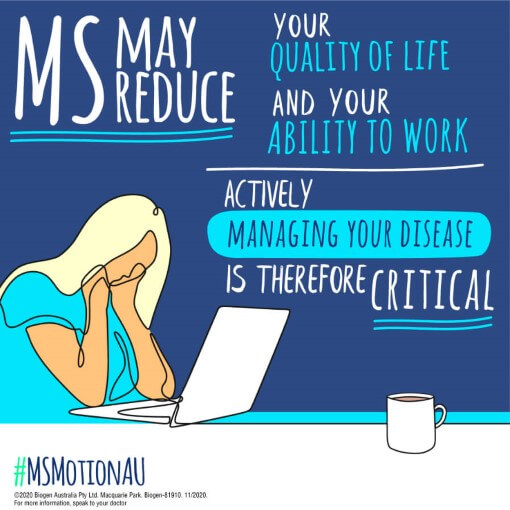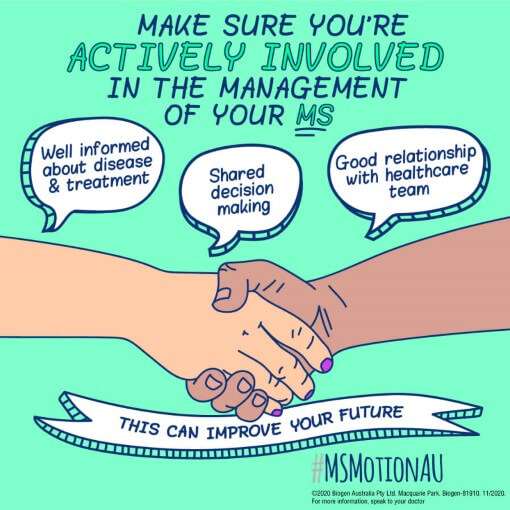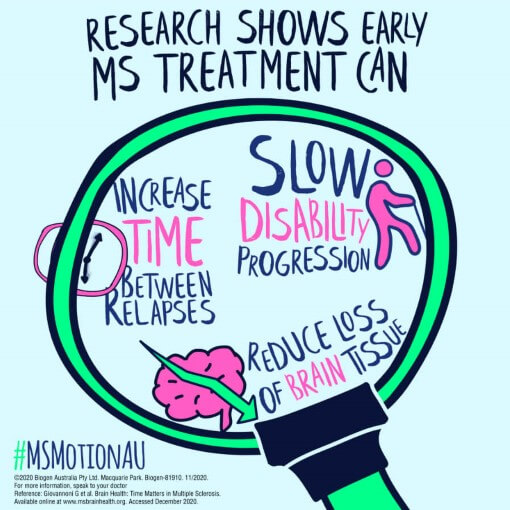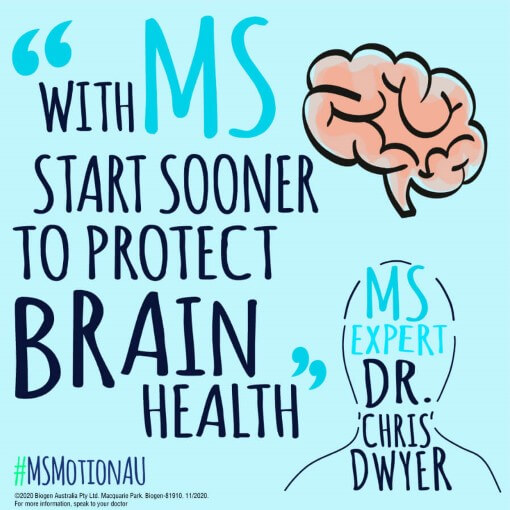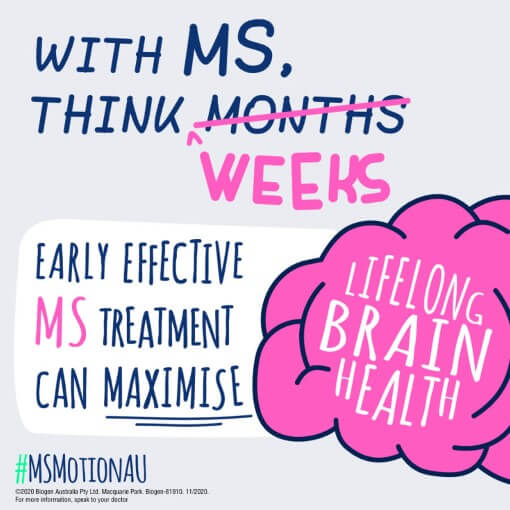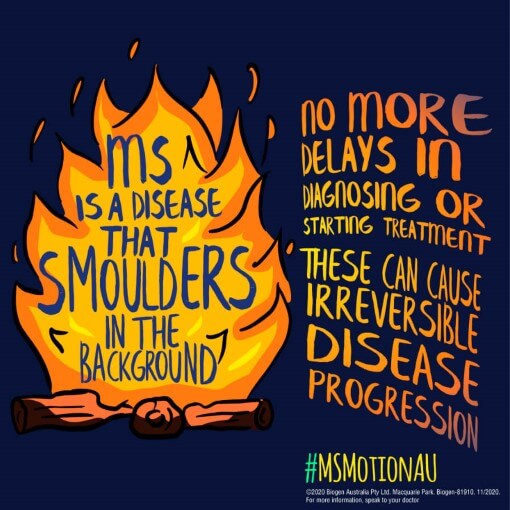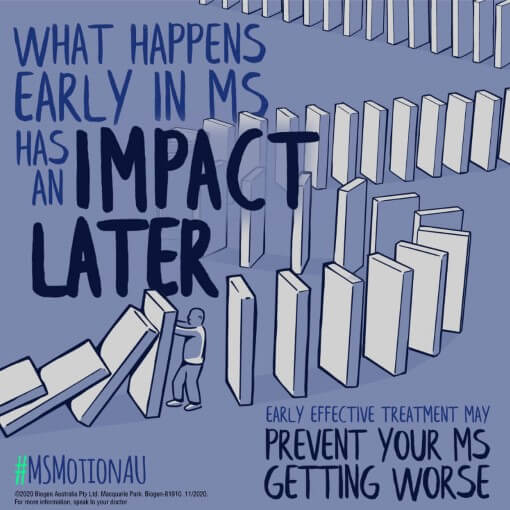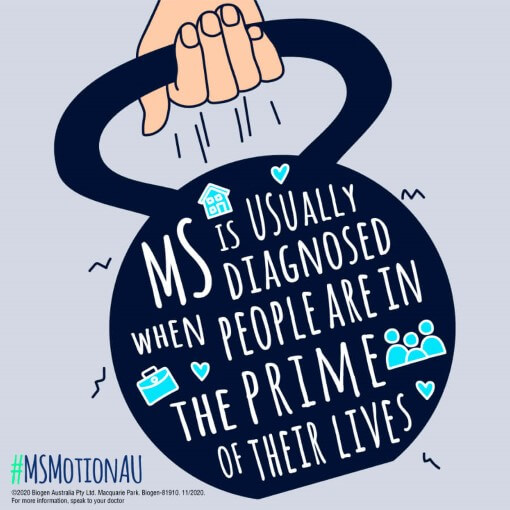Multiple sclerosis, often referred to as ‘MS’, is a disease where the body’s immune system damages the nerves in your brain and spinal cord. This damage can cause a range of symptoms affecting sight, movement, balance and other bodily functions. It’s important to keep track of any changes happening to your body. If you’ve experienced any MS symptoms it’s a good idea to go and speak with a doctor.
Familiarise yourself with MS so you know what to look out for.
You can’t always see the damage that MS causes, as it happens in your brain and spinal cord – and sometimes you won’t feel the impact of this damage immediately either.
This is because MS is a disease that damages your body in the background – even if you feel fine – so delays in starting treatment can mean your disease may get worse.
Acting fast by speaking to your doctor about treatments is important because getting on treatment early can help to protect your brain and reduce the impact MS can have on your life. Check out our discussion guide which goes through symptoms and quality of life and can help make sure you ask the right questions for you.
With MS – start sooner to help protect your brain as much as possible.
A diagnosis of MS may leave people feeling helpless and confused. The MS community deserves to know more about how time and speed can be critical in helping reduce further damage caused by MS – but we need your help to get the word out there.
An initiative has been built by people with MS, for people with MS – that aims to raise awareness and share information about how acting fast in MS can improve lives.
Having an open and collaborative relationship with your doctor is important for successful management of MS. It’s important to speak to your doctor if you’re either starting to experience early signs or symptoms of MS, as well as if you’re going through any life changes that may affect your existing MS. Understanding what’s important to you can help you and your doctor make better decisions for the management of your MS. If you’re unsure how to start this conversation, our discussion guide can help you generate a list of talking points for your appointment.
Use our discussion guide to identify your top areas of concern and make the most of your next appointment with your doctor.




